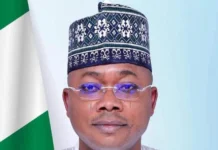Mr Ibrahim Thiaw, the Special Adviser to the Secretary-General for the Sahel, says stability and development in Africa’s Sahel region are important not only for Africans, but also for Europe and beyond.
Thiaw told the UN Security Council that efforts to address the multiple challenges facing the region should be driven by local, regional and national leadership with the support of international partners as required.
“The Sahel is one of the least developed regions in the world, facing simultaneous challenges of extreme poverty, the dire effects of climate change, frequent food crises, rapid population growth, fragile governance, and terrorist-linked security threats,’’ he said.
According to him, an upsurge in criminal activities and cross-border organised crime, preying on the most vulnerable across the vast, mainly desert region, which stretches from the Atlantic Ocean to the Red Sea, is only adding to the challenges.
“The profits generated from human, drug, and arms trafficking can only make a precarious situation even less tenable.
“A portion of the criminal or illegal proceeds is instead used to feed extremism and exacerbate instability,” he added.
Thiaw reviewed the UN Integrated Strategy for the Sahel which was approved by the Security Council in 2013 and was a part of a preventive and integrated approach to strengthening governance, security and development in the region.
In 2018, the strategy was given fresh impetus by UN Secretary-General Antonio Guterres, through the adoption of the Sahel Support Plan, he said, stressing the importance of an approach that looks beyond the security aspect to ensure stability of the region.
“Economies need to be transformed, people’s lives have to be improved, and the region’s youth have to be given hope.
“At the same time, public perception of the Sahel needs to be changed and the many potential assets the region offers highlighted,” he said.
Thiaw said the Sahel was ideally placed to boost its economy through renewable energy such as solar or wind, adding that reaching key targets would require good governance and the mobilisation of resources across the region.
He noted that for these reasons, a new mechanism within the Sustainable Development Goals Trust Fund has been established to make UN interventions for the region more effective.
“Such a flexible and transparent mechanism will make it possible to respond more quickly and better to the needs, often unpredictable in the long term, that arise in the Sahel,” he said. (NAN)



